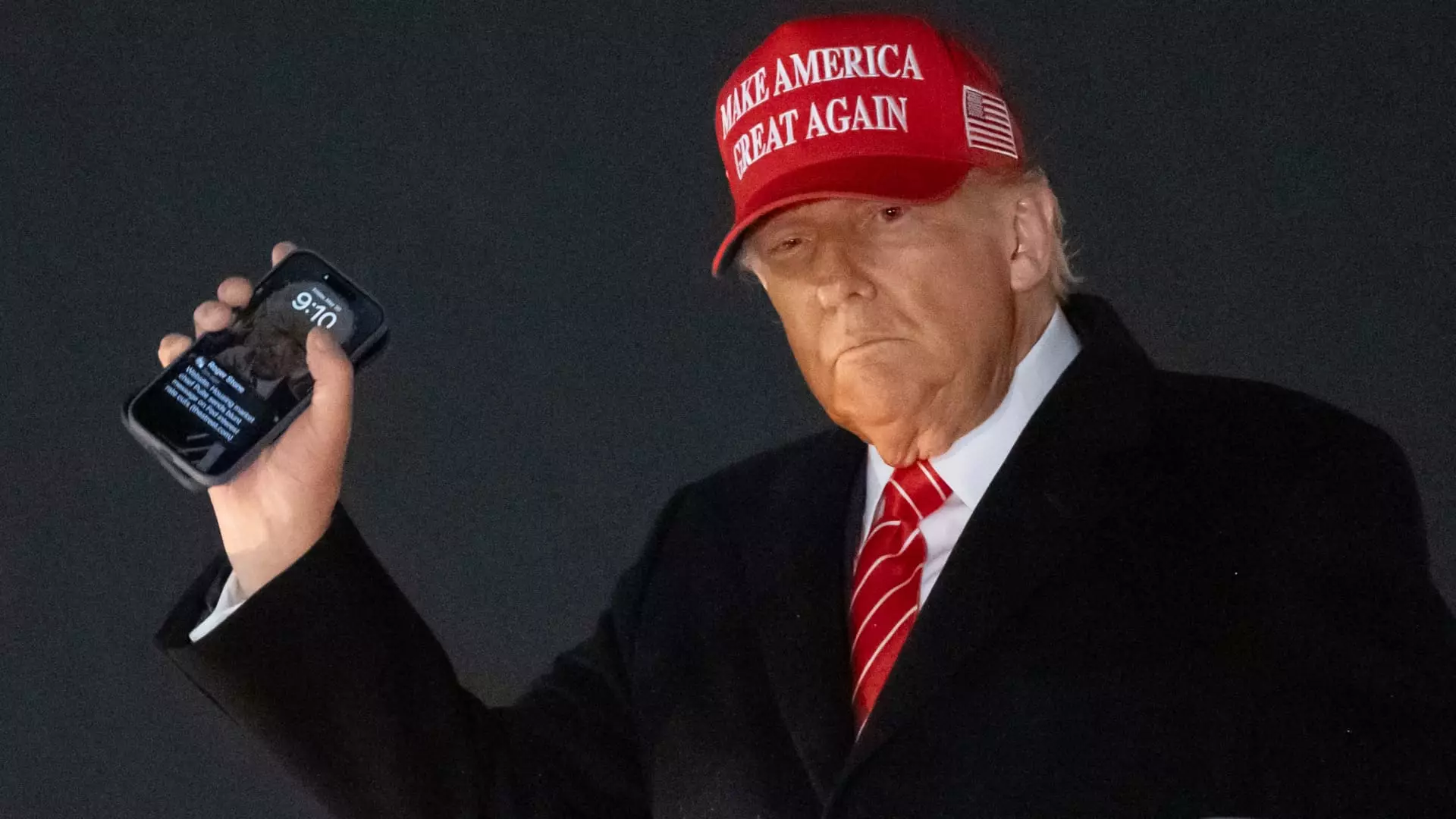The announcement of Trump’s latest business venture, Trump Mobile, has evoked a complex tapestry of reactions within the public sphere. Retailing at an eye-popping $499, the smartphone comes shrouded in the usual controversy surrounding anything touched by the fingers of Donald Trump. While the device boasts a sleek design—complete with a gold-colored metal case etched with the American flag—this superficial grandeur masks deeper ethical and economic shortcomings that cannot be ignored. Beyond the glitter and glamor lies a revealing narrative about the current state of political capitalism in America; is it not startling that a sitting president’s business empire continues to thrive at the expense of ethical standards?
The Pricing Dichotomy
The pricing strategy of the Trump Mobile plan raises eyebrows. At $47.45 per month, the plan offers relegated access to unlimited talk, text, and data alongside added perks like roadside assistance and a Telehealth service. However, when juxtaposed with competitors like Visible and Mint Mobile, which provide similar plans for $25 and $30, respectively, Trump Mobile appears to capitalize unashamedly on brand loyalty rather than genuine innovation. It’s hard not to wonder whether the allure of the “Trump” brand is convincing enough to sideline customers’ sensibilities regarding market value and functionality. Such a strategy hinges on a kind of misplaced populism that claims to resonate with the ordinary American, yet ultimately serves the elite interests of an already wealthy businessman exploiting his political career.
A Merger of Brands and Politics
The launch of Trump Mobile is indeed a troubling reminder of how intertwined commerce and politics have become in the current American landscape. The name itself—”The 47 Plan”—is nothing short of a blatant attempt to capitalize on the nostalgia and branding associated with Trump’s presidency, merging politics with consumerism in an egregious manner. When one considers the timeline of similar ventures, including watches and even Bibles, it becomes painfully apparent that Trump’s initiative is less about consumer needs and more about exploiting his personal brand for profit. The ethics of such licensing agreements raise serious questions about the responsibilities of elected officials. Is it appropriate for someone in power to intertwine their political stature with commercial ventures that benefit them financially, all while promoting a veneer of patriotic appeal?
Consumer Ignorance or Complicit Loyalty?
A critical eye is warranted when examining the consumer landscape that grants Trump Mobile even a modicum of legitimacy. Given the apparent excess attached to the product, one can only speculate how the avid Trump supporter navigates the waters of product marketing and personal allegiance. Is there an undeniable compulsion among his base to purchase products directly tied to their political beliefs? It’s troubling to think that brand affiliations can so easily eclipse rational economic assessments—a kind of cognitive dissonance that allows for indulgence in both loyalty and self-interest. It raises larger questions about the nature of consumer behavior in a post-truth society, where loyalty often trumps logic and economic sensibility.
The Fragility of Expectations
Moreover, the ostensible inkling of an American-based customer service center exists alongside unsettling reminders of management transparency. Representatives refuse to disclose their call center’s location “for security reasons,” conveniently shrouding the organization in an additional layer of ambiguity that many consumers may find alarming. For a brand attempting to assert itself in the fiercely competitive mobile telecommunications arena, a lack of transparency generates reasonable distrust. The promise of American-made service feels almost hollow when juxtaposed with such opacity.
The failures and ethical ambiguities ingrained in the Trump Mobile initiative encapsulate a dire warning about the intertwining of political influence and commercial enterprises in contemporary America. The realities of unchecked capitalism and the commodification of political identities threaten to erode not just the credibility of public office, but also the integrity of consumer spaces. The expensive smartphone and service aim to entice, but ultimately reflect a deeper malaise within both the market and political landscapes—one that should compel us to question: at what cost do we indulge in such brand loyalty?

Leave a Reply